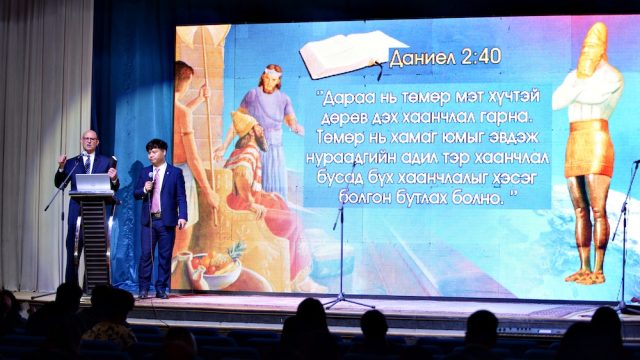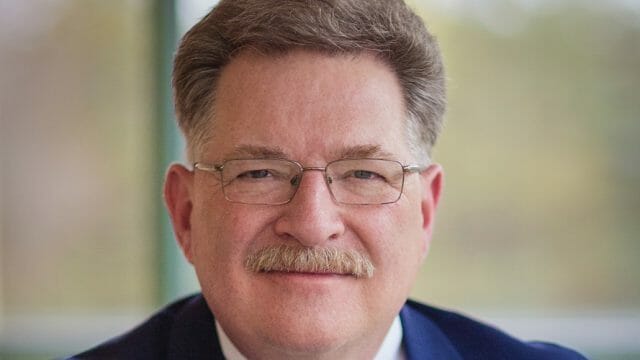After the fall of Adam and Eve in the Garden of Eden, the gift of prophecy became an important means of communication between […]

After the fall of Adam and Eve in the Garden of Eden, the gift of prophecy became an important means of communication between God and humanity. Throughout the Old Testament we find a long line of faithful messengers of the Lord who guided, counseled, and frequently rebuked and admonished the Israelites and their kings (1 Sam. 13:13, 14; 1 Kings 18:21: Jer. 7).
The prophetic gift did not cease with Malachi, the last Old Testament prophet. Though there was a long gap of about 400 years between Malachi and the birth of Jesus, the gift of prophecy was again evident in the New Testament period. The authors of the New Testament, as well as several other individuals mentioned in the New Testament, had the gift of prophecy (Luke 1:67; Matt. 11:13, 14; Acts 13:1; 15:32; 21:8-10). Paul wrote to the Ephesians that the gift of prophecy would remain in the church “till we all come to the unity of the faith and of the knowledge of the Son of God” (Eph. 4:13).
In the book of Revelation, therefore, the remnant church in the time of the end is said to have “the testimony of Jesus Christ” (12:17), which John explains is the “spirit of prophecy” (Rev. 19:10) or the prophetic gift (Rev. 22:9). Hence we should not be surprised to find that God in modern times has called and may yet call individuals to be His prophets. Seventh-day Adventists believe that Ellen G. White had the genuine prophetic gift.
INSPIRATION
In 2 Timothy 3:16 the apostle Paul wrote, “All Scripture isgiven by inspiration of God.” Biblical writers often claimed to be recording the very words of God, making such statements as “And God spoke to Moses and said to him . . .” (Ex. 6:2); “The Spirit of the Lord spoke by me, and His word wason my tongue” (2 Sam. 23:2); “The word of the Lord came to me, saying . . .” (Jer. 2:1), etc.
The word “inspiration” describes primarily the way or method God used to communicate His truth to the prophets. At times God used visions and dreams (Num. 12:6); at other times He spoke face to face (verses 7, 8), or simply guided writers with the Holy Spirit so that what they wrote was in harmony with His will. Thus the apostle Peter declared: “Prophecy never came by the will of man, but holy men of God spoke as they weremoved by the Holy Spirit” (2 Peter 1:21).
The word “moved” (Greek: phero) is used in Acts 2:2 for the “rushing [phero] mighty wind” that descended on the believers at Pentecost. Acts 27:15 refers to a ship that was driven (phero) along by the wind, making the sailors unable to steer or control the boat. In 2 Peter 1:21, therefore, the use of the word pheroimplies that the biblical writers were borne along by the Spirit as a ship is borne along by the wind. They were under His control.
TESTING THE PROPHETS
Because throughout history many false prophets have appeared, God gave some criteria by which true prophets could be recognized. The most important are:
- Agreement With the Bible:What a true prophet says has to be in harmony with previous revelations of God’s will (Isa. 8:20). This is certainly true of Ellen White; all her messages are in harmony with Scripture. She constantly quoted and referred to the biblical text and recommended Scripture to others.
- Fulfilled Prophecy:What prophets predict must take place (Deut. 18:21, 22). The exceptions are conditional prophecies (Jer. 18:7-10), such as we find in Deuteronomy 28:1, 15 and in the story of Jonah.
Although Ellen White’s work did not primarily consist of predicting the future, she did make a number of predictions that have been fulfilled in remarkable ways. For example, on March 24, 1849, Ellen White wrote about the mysterious knocking that began in 1848 in the home of the Fox sisters at Hydesville, New York: “I saw that the mysterious knocking in New York and other places was the power of Satan, and that such things would be more and more common, clothed in a religious garb so as to lull the deceived to greater security.”1A year later she wrote, “I was shown that by the rapping and mesmerism these modern magicians would yet account for all the miracles wrought by our Lord Jesus Christ.”2One hundred years later, in 1948, the Centennial Book of Modern Spiritualism in Americaclaimed: “Spiritualism, with its signs, wonders, vision, and healing gifts, was the religion of the apostles; of the post-apostolic fathers, and the primitive Christians.” Furthermore, it said that “a medium foretold the birth of Jesus, whose brief life on earth was filled with the performance of many so-called miracles which in reality were spiritual phenomena.”3
- The Orchard Test:The lives of true prophets have to bear evidence of their calling. Jesus in Matthew 7:16 said, “You will know them by their fruits.” This test takes time. Ellen White lived and worked for 70 years under the critical eyes of millions of people, largely skeptical, doubtful, suspicious, and in some cases openly hostile. She traveled extensively and lived several years in Europe and Australia, but the fruit of her life and labor attests to her sincerity, zeal, and Christian piety. She was instrumental in the establishment of Adventist hospitals, schools, and the publishing work.
- M. Wilcox, editor of the Review and Heraldand an associate of Ellen White, wrote in 1933, “Her life and Christian experience conformed to the pure, simple, dignified principles of the gospel of Christ. She exemplified in her own life, as does every true prophet, the principles of truth she taught to others.”4
God’s guidance of the Seventh-day Adventist Church through the gift of prophecy has been a blessing to many individuals as well as to the church and its institutions.
1 Ellen G. White, Early Writings (Washington, D.C.: Review and Herald Pub. Assn., 1882),p. 43.
2Ibid., p. 59.
3Centennial Book of Modern Spiritualism in America (Chicago: The National Spiritualist Association of United States of America, 1948), pp. 115, 68.
4 F. M. Wilcox, The Testimony of Jesus (Washington, D.C.: Review and Herald Publ. Assoc., 1944), p. 35.
Gerhard Pfandl, originally from Austria, served as a pastor, Bible teacher, field secretary, and associate director of the Biblical Research Institute. He enjoys an active retirement in Burtonsville, Maryland, United States, where he is actively engaged in his local congregation.
Read more about What We Believe at
https://www.adventist.org/en/beliefs/








